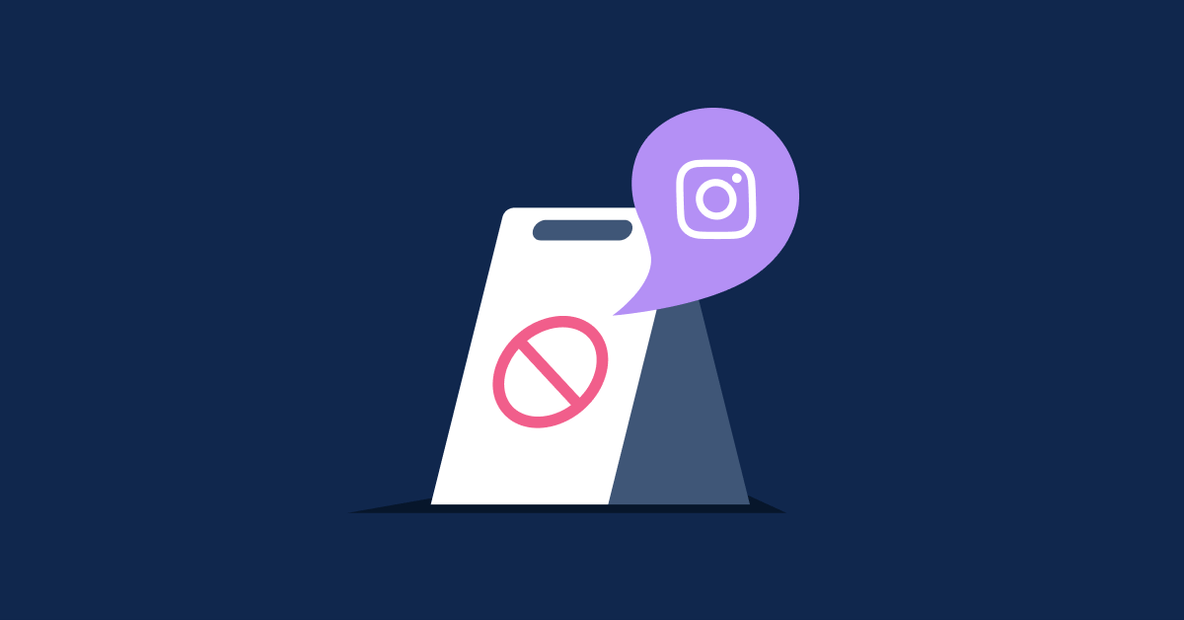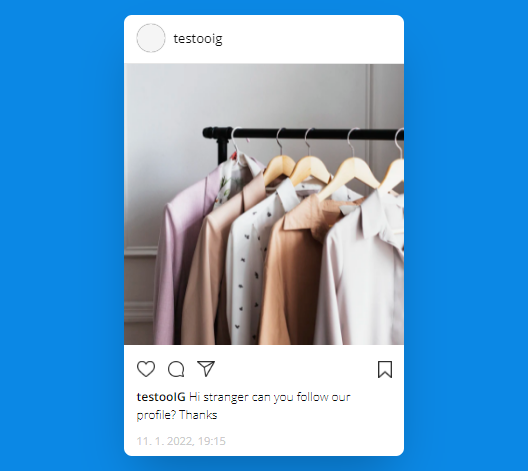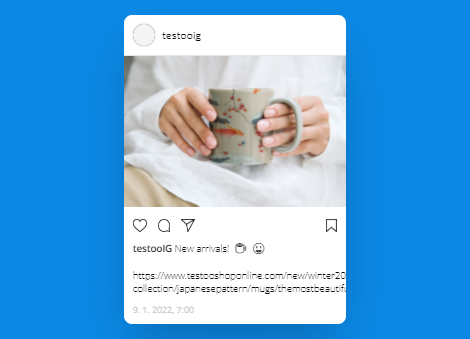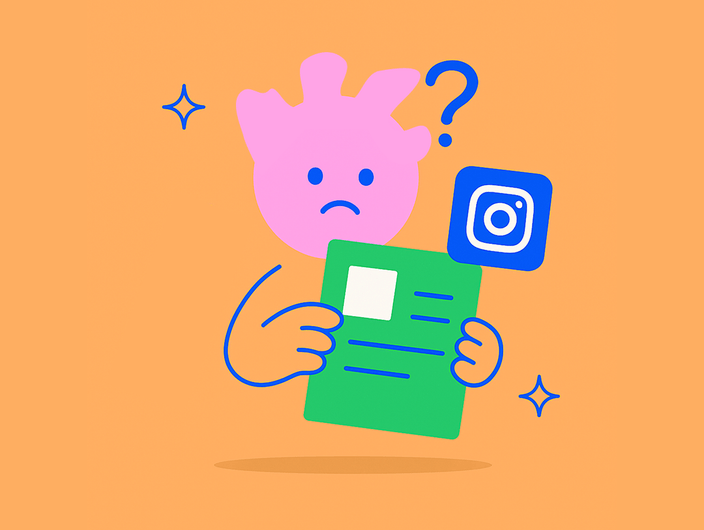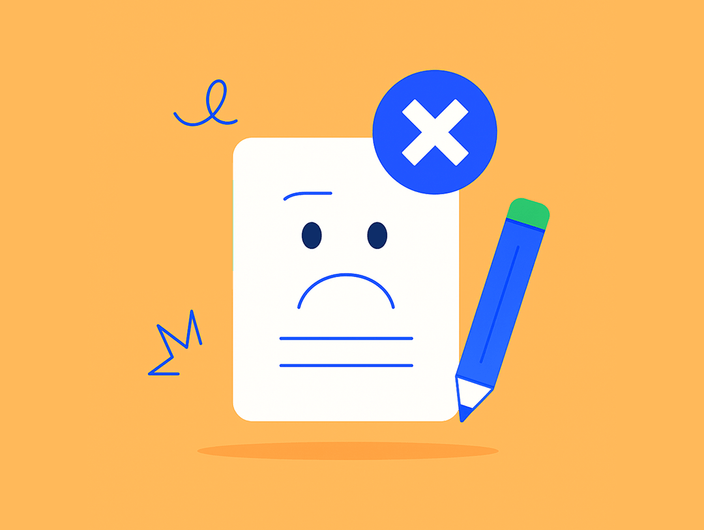Constant evolution is happening in social media, and it’s changing faster than we can keep up with it.
Instagram has grown from an app used primarily by teenagers to one of the most popular social networks in just a few years. From hashtags to stories, tons of new features on the platform are released regularly. Brands often find it difficult to stay current with all these changes, so it’s easy for social media teams to make mistakes.
But you’re not alone, as we’ve got you covered. In this post, we’ll go through more than a dozen common Instagram mistakes and tell you how to avoid making them in your communication.
#1 Low-quality creatives
Fellow social media manager, just take a look at this photo:
Would you give it a ❤️ on Instagram?
Would you comment with anything other than “I think this photo is a bit off…”?
Never post anything you wouldn’t like to “heart” yourself from an aesthetic point of view. This includes:
- unnecessary blur
- filters and effects that destroy the quality and center of the photo
- low-quality
- incorrect image resolution (check out our Social Media Image Cheat Sheet to stay up to date with the right sizes)
You should use live post previews if you are uncertain about how the content will look once it has been published. Kontentino lets you preview both your Instagram feed and Instagram post view before what you are publishing goes live, so you can make necessary adjustments before it’s too late.
#2 Lack of hashtags
Instagram posts without hashtags are like sheep without a shepherd – they still exist, but they may not survive in a crowd of other posts. Instagram hashtags serve many purposes. You can use them to narrow your audience, explain the nature and goal of your posts, show their characteristics, and gain new followers.
Each Instagram post can contain up to 30 hashtags, and it’s always worth using at least 10 of them. You don’t necessarily have to add the full amount, though.
It is pointless to add certain hashtags just because they are popular – since the competition is so fierce, there is a strong possibility that your posts will get lost. Your account won’t benefit either if you only use very niche hashtags, since your profile simply won’t be found.
Use hashtags:
– describing what’s in the photo
– mentioning the date and location where the picture was taken
– referring to communities and localities
– describing your sector or industry of operation
– belonging to your set of branded hashtags
This post uses none of the above:
#3 Not using the full potential of your Instagram BIO
The Instagram Bio is the only place on a profile where you can permanently mention your brand and include a link. With 150 characters, you have an opportunity to convince potential followers that interacting with your brand is worthwhile. Instagram bios often get completed haphazardly and without a clear idea, so instead consider it as a first impression that you only get one shot at.
What elements should be included in an Instagram BIO?
- Your company’s full name
- A quick introduction/description
- Link to website / another online resource
- Bullets and emoticons as identifying marks
- The hashtags for your brand
Take advantage of this opportunity to gain users’ attention.
#4 Not using IG Stories at all
Instagram Stories were designed to extend the user experience in more “fleeting” and interactive ways. They are free and open to everyone on the platform.
Then why don’t many brands use this format? It only takes a few seconds to create Instagram Stories, and with many elements available natively on the platform, crafting your message is very simple. Or you can use trending Instagram Story templates to create eye-catching and brand-focused stories. Many marketers avoid this format mainly because they have no idea what to post as an Instagram Story.
And here, as always, we come with a bunch of creative ideas. What to post on Instagram Stories?
- show your brand’s human face (everyday work or corporate culture)
- share info about your newest Instagram posts
- promote and tag products from your online store
- run live stories from wherever you are
- create quizzes, polls, or surveys
- repost Stories that you are tagged in
- create guides and save them to Highlights on your profile
As you can see, there are a lot of ways to use Instagram Stories (and we haven’t even mentioned all of them). Read our Instagram stories best practices guide and make your stories more interesting.
#5 No strategy
An Instagram strategy is as important as any other aspect of a brand’s activities. It will be easier to come up with new content if you have a strategy established for dealing with this channel. Unfortunately, it is commonly very visible at first glance that a given IG account is being run without any strategy. This is not only a mistake, but also a huge missed opportunity.
A strategy of action on Instagram should be defined by elements such as brand differentiators and unique selling points, communication lines, fixed photo filters, creative copy, and hashtags. Moreover, it is important to plan out additional promotional activities, a strategy for boosting posts with ads, or campaigns with engaging micro-influencers on Instagram.
Those aspects of strategy that can’t be seen at first glance are often overlooked as well. Consider adding an Instagram workflow, asset, and task management procedures to make your work easier.
That’s probably not a way to go.
#6 Typos and mistakes
Caring bout the qality of ur copy on Insta is cruciall. (see what we did there?)
Your best efforts might be in vain if your posts are not grammatically correct, include typos, or contain logical mistakes.
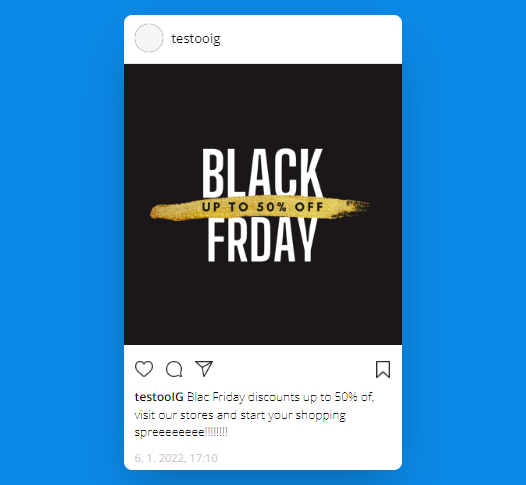
Even if eliminating all mistakes is impossible, reducing the likelihood of them occurring certainly isn’t. Here are a few procedures you can employ:
- proofread your posts a few times before they go live
- send content plans for internal and external approval (pssst, you can do this easily with Kontentino!)
- create brand guidelines for constant reference
- use tools for checking the grammar construction (e.g. Grammarly)
- simply double check before you post
Sometimes one extra second of caution and control can save you several days of drama.
#7 Not getting into real interactions
Although managing a community on Instagram is time-consuming and can consume resources, it’s worth putting some effort into interacting with existing and potential followers. It is well known that you should interact with accounts in addition to clicking ‘Follow’ – if you read their posts, like them, and leave comments, there is a good chance they will become followers in the near future.
Brands often forget that the first contact is not everything, though. It’s not enough to just post or like once or twice. Relationships with followers are like those with friends: if you don’t care about them, they can be lost at any time. But you no longer need to post long comments everywhere, as Instagram has introduced more quick reactions like emojis, votes, and answers to encourage interactions.
It’s especially important in the early stages to remember that you have to start somewhere, but always with a goal in mind. In order to drive engagement, it is important for brands to create interactive content and creative elements that encourage followers to interact with it.
#8 Spamming
This is one of the most common Instagram mistakes.
Engaging users =/= spamming
Using buzzwords and empty statements such as:
- “great photo!”
- “amazing, follow me”
- “follow 4 follow?”
or anything else that could fall under this umbrella is considered to be spam.
This won’t generate you valuable followers or customers, but rather those looking for attention of any kind. Additionally, you risk damaging your brand’s reputation and annoying your current followers by leveraging such bad practices (can you imagine your favorite brand spamming IG like that?).
Although you may gain a few followers and maybe even a couple of comments as a result, this practice may do more harm than good to your Instagram profile in the long run.
#9 Buying followers and using bots
A world where authenticity is the currency has no place for bots. Many marketers believe that buying Instagram followers is helpful for raising their status or credibility, but the truth is that those followers are most likely not genuine.
Bots may be created in bulk and programmed to visit profiles and like content automatically, without any further interaction or impact on sales. In other words, they are nothing more than fake, empty accounts that follow you.
It’s possible to damage your reputation if such fake accounts are discovered. Also, Instagram has researched well into such practices and if they notice suspicious activity on your account, they may ban it without any possibility of recovery.
All in all, it’s not worth the risk.
#10 No KPIs
Consider for a moment what your goal is before you click “publish” on Instagram. What is most important to you: increasing your reach, a low cost per click (in the case of paid campaigns), or a high return on investment? How does your post relate to building relationships with customers and getting feedback from them? Is your post supposed to lead to the purchase of the product you are promoting?
Marketers often fail to know or understand this aspect, even if having a clear KPI for each post allows them to better structure it. If your post highlights a new face cream in your store, feel free to add a CTA to your photo, tag the product, and/or encourage your followers to take action in the copy.
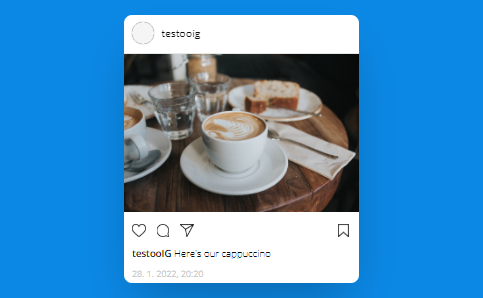
#11 Posting the same content elsewhere
It is common for marketers to assume that they can duplicate content 1:1 when creating a strategy for a new social channel. In theory, you can share identical posts across both social media channels with just one click, but is it worthwhile?
Try to make a distinction between topics that are appropriate for Instagram and those that are better suited for other social media platforms. You may often find that you should cover many topics across all of your social media channels. In that case, they can usually be covered more than once but from a variety of perspectives tailored to each particular platform.
If you want to leverage Instagram, you need to pay attention to the image dimensions, hashtags, and descriptions (since you cannot add links to them). Furthermore, you can also include product tags and tag other accounts in your Instagram content for even greater customization.
#12 Lack of consistency
Choosing to join Instagram means not only convenience and endless possibilities, but also a lot of responsibility. Let’s say that you start posting every two days, build relationships with your followers, and create a community around your Instagram profile. Everything is going well and… then, radio silence.

(call it consistency, but not regularity!)
Followers are left wondering what happened to you after you stopped posting. Likewise, Instagram’s algorithm doesn’t take mercy on inactive accounts and may soon stop displaying your posts in people’s feeds. You might find that even if you return after some time, your results leave a lot to be desired.
It can be challenging to be consistent and regular on Instagram, but it’s the only way to succeed there. Once your audience gets used to seeing your content, you need to keep providing them with it. If you stop communicating, they will forget about you sooner than you might think.
#13 Inconsistent branding and visuals
Consistency also applies to branding and visuals.

If your followers get used to one type of grid you serve them on Instagram (for example, two colors), and then you start experimenting with something totally different, they may become confused and stop following your brand. If you have been following the same design or copy pattern for a long time and suddenly change it overnight, this could impact engagement on your profile as well.
#14 No security measures
Many marketing mistakes on Instagram come from a lack of security measures and having accounts banned, lost, or hacked. One way to help prevent your account from being hacked is to introduce two-factor authentication.
If your Instagram account and password are protected in this way, you’ll receive a notification or be asked for a special login code as soon as someone tries to log into your account from an unfamiliar device or location. A few minutes spent setting up two-factor authentication can prevent many unpleasant situations, including hacking of your account and damage to your brand reputation.
#15 Lack of analytics
Without tracking important metrics, analyzing them, and drawing conclusions for your marketing strategy, how can you know if your Instagram profile is successful? Data is the key to properly optimizing your Instagram presence.
Instagram Business Profiles come with a variety of analytical features, but many of them are only available for the previous 28 days. With tools for social media management like Kontentino, you can access more data for longer time periods.
If you analyze engagement rates, reach among your target audience, or reactions to specific types of content, you can improve your performance and curate your strategy so that it’s more effective. If you don’t analyze, you are just guessing.
#16 Putting links where they do NOT belong
We’ll keep it short: you can only add links in two Instagram placements. One is in your Instagram Bio, and the other is in Stories (you can add a link as a sticker).
Links (especially long ones) in your posts are not only unusable as they will not be clickable, but they will also negatively affect the aesthetics of your posts.
It is almost impossible to copy and access such a link (have you ever copied one yourself?). Additionally, they may affect the readability of your copy or hashtags, causing the audience to lose focus on what you were trying to convey.
Simply don’t do it. Use mentions or tags, but keep links for IG Bio or Instagram Stories.
#17 Being a boring, generic brand
Give your followers a reason to follow you. There are more than 200 million business accounts on Instagram. Having a profile on this platform is not enough, which is why many marketers aren’t getting results from Instagram. Staying informed, getting inspired, and testing new strategies are essential on a platform like this unless you want to make the same mistake as everyone else.
Tackling Instagram mistakes
We have all been there. You post a photo for Instagram, it gets zero likes or comments, and you wonder what went wrong.
There are many mistakes that people make when it comes to social media marketing on Instagram, but they don’t realize they’re making them until it’s too late. That makes avoiding these pitfalls altogether difficult, if not impossible.
Rather than trying to avoid Instagram mistakes at all costs, we recommend that you approach them head-on with an attitude of learning from what you (or your competitors) have got wrong in the past. Hope our list will be helpful to you, too.
